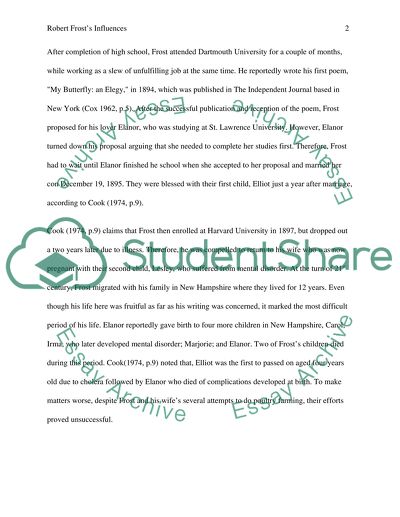Cite this document
(“Life Events That Influenced Robert Frosts Poetry Essay”, n.d.)
Retrieved from https://studentshare.org/literature/1484484-life-events-that-influenced-robert-frosts-poetry
Retrieved from https://studentshare.org/literature/1484484-life-events-that-influenced-robert-frosts-poetry
(Life Events That Influenced Robert Frosts Poetry Essay)
https://studentshare.org/literature/1484484-life-events-that-influenced-robert-frosts-poetry.
https://studentshare.org/literature/1484484-life-events-that-influenced-robert-frosts-poetry.
“Life Events That Influenced Robert Frosts Poetry Essay”, n.d. https://studentshare.org/literature/1484484-life-events-that-influenced-robert-frosts-poetry.


